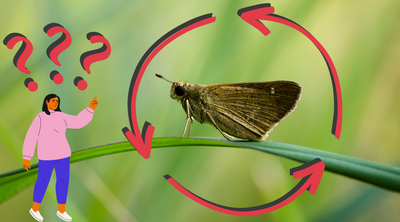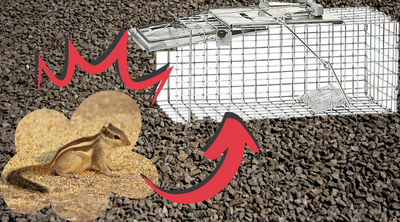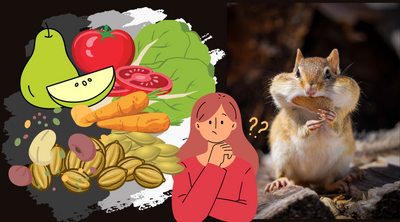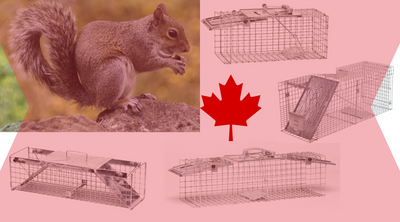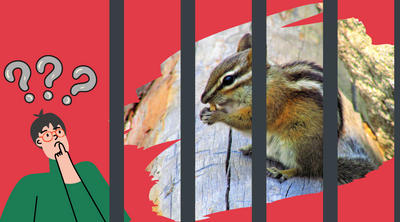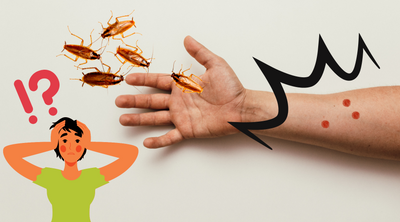It is frustrating when pests are treating your garden like a pantry. There are various tricks to keep wildlife pests out of your property, but these methods usually don’t work on larger animals such as raccoons, deer, squirrels, and cats.
Here are some tips on how to keep wildlife pests from snacking on the flowers, fruit, and vegetables in your garden.
Determine the Culprit
Not all prevention methods work well on wildlife pests, so you should determine what is invading your property. Keep an eye on the garden to determine what animals are causing problems.
If you have not been able to catch anything, you should look for droppings or paw prints that could give you an idea about the critter invading your garden.
Animal Repellents
You can use strong scents to repel animals. The scent you should use depends on the kind of animal you want to deter. Ammonia can keep most animals away.
Spicy scents such as cayenne can help deter deer. Citrus scents can keep cats out of plants. You can scatter lemon or orange peels around the plants. Coffee grounds can be used to deter various wildlife pests.
Predator urine, garlic clips, and castor oil are effective temporary solutions. You need to monitor and reapply these solutions to maintain their effects. Fritillaria and castor bean can be used to deter rodents. If you want to use mothballs, make sure to use it with caution because it’s poisonous to children and pets.

Adjust the Landscape
Small animals such as voles, rabbits, and squirrels can be deterred by adjusting your landscape. Trim tall grasses and fill in spots and holes where these critters may hide. By doing so, your garden will be less attractive to wildlife pests and it will be easier to catch them.
Install Sensors
Motion activated sprinklers may also help. The motion sensor will trigger the sprinklers as soon as animals come close enough. The animal will run away at once. Sensors are expensive, but they’re effective.
Blood Meal
A lot of animals such as rabbits and deer don’t like the scent of blood. A blood meal is an organic fertilizer that you can use to keep wildlife pests away. It’s a dry powder crafted from the blood. Meatpacking plants are usually used to make blood meal.
Keep Plants Contained
Putting up a fence is the best way to prevent wildlife pests from causing damage to vulnerable plants. If you don’t want to put up a fence, you can use mesh covering instead.
The plants will still get enough sunlight. The mesh covering also serves as a barrier against wildlife pests. Make sure the mesh has no holes or small critters will be able to enter.
Pets
Cats and dogs can also help deter wildlife pests. Dogs can nab furry pests. Cats are good at catching gophers and voles.
Live Trap
Live traps have a spring-loaded door and are made of durable materials such as galvanized steel mesh. It’s available in various sizes. Crackers, veggies or other food items are used to lure the critters inside. The door closes and the critter is locked in.
It is easy to catch a chipmunk, woodchuck, rabbit, or squirrel in live traps. However, you need to determine what to do when and if you catch one.
Wildlife relocation is prohibited in some states. Even it is allowed, relocating wildlife can still be vindictive to the animals and to the people who reside in the new area.
Electric Fences
Exclusion is a long-term solution. Fences can be a seasonal solution that is installed and removed as needed or permanently installed. Mesh fencing can be tied or stapled to fence posts.
Electric fences can be used to deter rabbits, deer, and woodchucks. It requires money and time, but it provides the best protection for your plants.
Here are some tactics to keep certain kinds of wildlife pests away.
Deer
- Mix dishwashing detergent (1 teaspoon), egg (1 piece) and water (1 litre) and spray shrubs with the mixture. The smell is revolting to deer. You can also install an 8' or 2.5-meter deer fencing around the area.
Rabbits
- Install chicken wire fencing to protect your vegetable garden. Bend the bottom 3" or 7.5 centimetres of the chicken wire outward then bury it in the ground to prevent rabbits from burrowing.
Raccoons and Squirrels
- Secure the lid of garbage cans to deter raccoons. You can also place rounded baffles on your bird-feeding posts to keep squirrels away.
Birds
- A chicken wire fence with a mesh roof can help deter birds. You can also cover strawberry patches and fruit trees with mesh just as the fruits start to form.
Snakes
- Snakes help control rodents, but there are poisonous species as well. If it’s a problem in your area, you should eliminate habitats like rock or woodpiles or utilize a commercial repellent to keep them away.
Rats and Mice
- Eliminate their food sources to reduce their population. Put birdseed and pet food in glass or metal containers with a tight-fitting lid. Don’t use rodent poison in a home with small kids.
- Avoid feeding birds in summer because the seeds can attract rodents. Moreover, birds have other food sources they can depend on. Trim grass and remove weeds to reduce the potential nesting sites of these pests.
Burrowing Animals
- Burrowing animals such as shrews, moles, gophers and moles help improve the texture of the soil in the garden. If they are not causing any damage to plants, you can just leave them alone.




